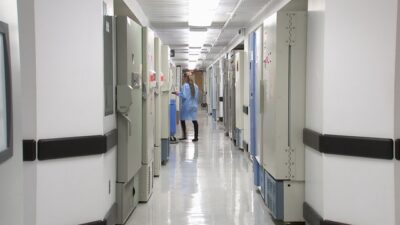Kaiser Permanente, one of the largest health systems in California, is trying to treat more patients at home as a way of reducing costs, and nurses are worried that more health systems may follow suit. Home All Alone programs allow hospitals to treat patients at home for conditions that require hospitalization for acute inpatient-level care rather than keeping them at the facility. But nurses say these programs endanger patients and threaten to cut nurses’ jobs.
The California Nurses Association (CNA) recently sent a message to state lawmakers asking them not to allow hospitals like Kaiser to treat patients at home. The Assembly Health Committee is set to debate the value of these programs during a hearing on May 2 where the union will present its concerns.
“Nurses know it is impossible to provide the equivalent quality of hospital care to patients in their homes as these programs falsely claim to do,” said Cokie Giles, a registered nurse and president of the CNA.
“When a patient requires hospital care, they require ongoing, in-person assessment and treatment by licensed health care professionals. In a hospital, patients have a wide variety of health care professionals who are available 24 hours a day, including doctors, registered nurses, respiratory therapists, pharmacists, and more. There is absolutely no way to duplicate this kind of care or the timely response that happens in a hospital in a home setting. We oppose the implementation of these schemes because we know these programs put patients’ health at risk and can easily lead to poor outcomes, including death.”
Hospitals say Home All Alone programs help reduce the cost of care and increase patient comfort by letting them recuperate in the privacy of their own home.
“Nurses have always and will continue to play a critically important and highly valued role at Kaiser Permanente. The Advanced Care at Home Program does not limit the role of nurses in hospitals,” Kaiser said in a public statement.
“The Kaiser Permanente Advanced Care at Home is an innovative person-centered program rooted in quality, safety and patient satisfaction. Patients enrolled in the program must meet established clinical and safety criteria. Regardless of whether the patients are receiving care in the comfort of their own home or in a hospital, we hold ourselves to the same high standard of care. The program empowers multidisciplinary care teams to provide the right care at the right time, meeting our patients where they want to be,” the statement added.
Kaiser has been using the program since 2020. At least 500 patients were treated from home using the program as of July 2021.
“We have seen improvements in patient satisfaction and reductions in healthcare-acquired conditions when compared with traditional hospitalization,” said Dr. Stephen Parodi, executive vice president of the program. “We are also finding a greater ability to identify social determinants that are affecting a patient’s health and making community connections to address issues such as food insecurity.”
But nurses with the CNA say it’s just a patient-dumping scheme designed to increase corporate profits.
“We heard from one nurse who briefly worked in one of these programs but quit because she said the care was ‘unethical’ and ‘dangerous’,” said Chris Nielsen, CNA’s assistant director of education. “The nurse was alarmed to find out that acutely ill patients were sent home with nothing but a watch that served as a call button, and a small tablet set up in the room where the patient spent the majority of their day.”
“Furthermore, the nurse said vital checks were carried out just twice a day, by either paramedics or EMTs, and that the first could happen as late as noon,” Nielsen added. “Patients could go up to 17 hours without being remotely accessed by a nurse, and unless a patient hit the call button, nurses would have no way of knowing if they were alive or dead. The nurse told us that the majority of a nurse’s time was spent arranging for delivery of medication and delivery of care. The experience was so upsetting, the nurse reached out to us to share their story as a warning.”
The Trump Administration passed the “Acute Care at Home” program under a waiver outside the normal rulemaking process. It allows hospitals to receive the full inpatient reimbursement rate even though these patients are being cared for at home.
Nurses with the CNA also say these programs put an undue burden on the patient’s family members, especially women, who will be forced to pick up the slack. The union even put together a short video explaining why it believes these programs are dangerous.
“The pandemic has laid bare what nurses have long known: corporate greed and consolidation have created a health care system that does not have the capacity to care for all those who need it in our country,” said Giles. “We must address this issue at its core, with a deep look at who is making decisions about our health care in this country. Now is not the time to deteriorate care by pushing people out of the hospitals when they need hospitalization, but by creating a more robust, more accountable system that puts patients’ needs at its center.”
















